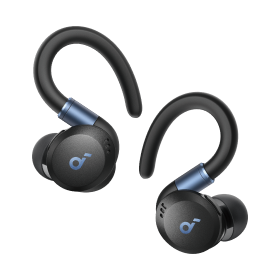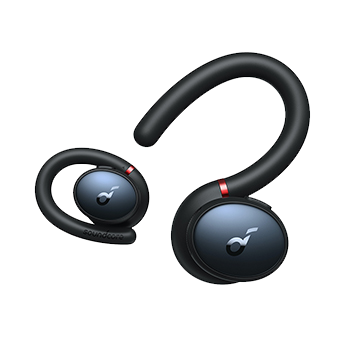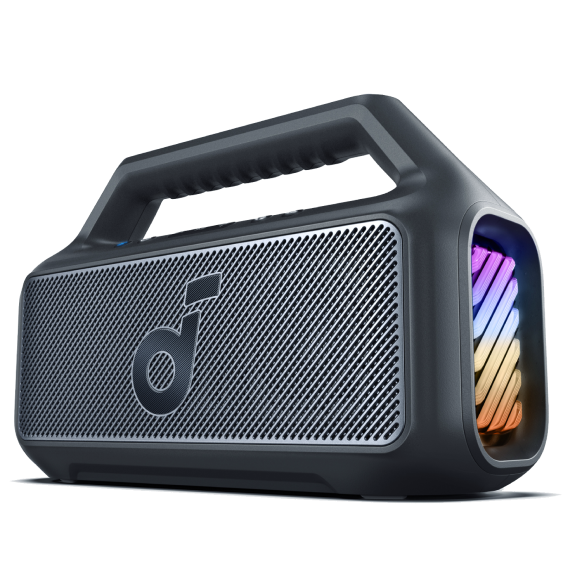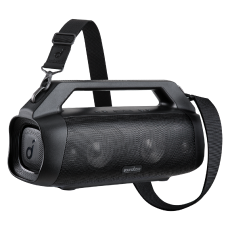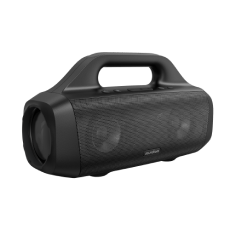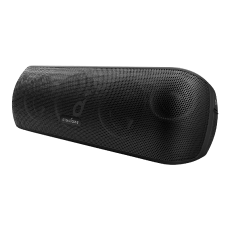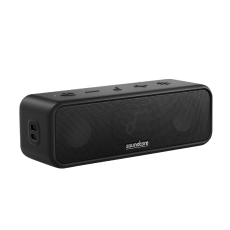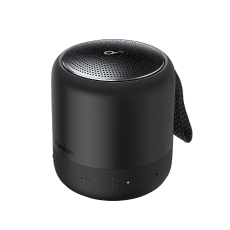Headphone Buyers Guide: What Should You Look For When You Buy New Headphones?
In the world of music and sound, headphones are a personal accessory that can make a significant difference in how we experience our favorite tunes, podcasts, or movies. But what should you look for when you buy new headphones?
This comprehensive headphone buying guide is here to answer that question and more.
So, whether you're a seasoned audiophile or a casual listener, read on to discover how to choose the perfect pair of headphones that will elevate your listening experience.
This comprehensive headphone buying guide is here to answer that question and more.
So, whether you're a seasoned audiophile or a casual listener, read on to discover how to choose the perfect pair of headphones that will elevate your listening experience.
What Should You Look For When You Buy New Headphones
When it comes to buying new headphones, the options can be overwhelming. There are so many factors to consider, from the type of headphones to the sound quality and even the price. But don't worry, we're here to help. Here's what to look for in headphones:
Types of Headphones
There are three main types of headphones: in-ear, on-ear, and over-ear.
- In-ear headphones,commonly referred to as earbuds, are lightweight and easy to carry. They are designed to fit precisely inside the ear canal, offering a comfortable fit that is suitable for use during high-movement activities like exercise. However, there are countless variations and types of earbuds, and not all may not offer the same sound quality as larger models.
- On-ear headphones sit on top of your ears. They're typically lighter than over-ear models and offer good sound quality, but they may not be as comfortable for long periods of use.
- Over-ear headphones are the largest and most comfortable type. They cover your entire ear, providing excellent sound quality and noise isolation. However, they can be bulky and less portable than other types.
If you're finding it difficult to figure out how to choose headphones for you specifically, consider your lifestyle and where you'll be using them. For example, if you're a frequent traveler, you might prefer in-ear headphones for their portability.
Wired or Wireless
The next thing to consider is whether you want wired or wireless headphones.
- Wired headphones offer the advantage of never needing to be charged and can provide a higher-quality audio signal. However, the wire can be inconvenient and limit your movement.
- Wireless headphones, on the other hand, give you the freedom to move around without being tethered to your device. They connect via Bluetooth, so you'll need to ensure your device is compatible and keep in mind that you'll need to charge them regularly.
If you're often on the go or like to listen to music while exercising, wireless might be the way to go. However, if sound quality is your top priority, you might prefer wired headphones.
Sound Quality
What are good headphones without good sound quality? Sound quality is subjective and depends on what you're looking for in your audio experience. Here are a few things to consider:
- Frequency Response: This is the range of bass, mids, and treble. A wider frequency response means the headphones can produce more sounds.
- Impedance: Lower-impedance headphones require less power to deliver high audio levels. As a result, headphones having a smaller impedance (fewer than 25 ohms) need less power to generate higher levels of audio.
- Sensitivity: This refers to how loud the headphones can get. Most headphones are around 110 dB/mW, but if you like to listen to music loudly, look for headphones with higher sensitivity.
- Drivers: The driver is the part of the headphone that converts the electrical signal into sound. Generally, the larger the driver, the better the sound, especially for bass.
Bear in mind, the best way to judge sound quality is to listen to the headphones yourself. Reviews and specs can help guide you, but everyone's preferences are different.
Noise Isolating vs Active Noise Cancelling
- Noise Isolating headphones block out external noise by creating a physical seal around or in your ears to keep unwanted sound out. They're great for use in moderately noisy environments.
- Active Noise Cancelling (ANC) headphones, like the Life Q30 NC headphone, use microphones to pick up outside noise and produce a counter-signal that cancels it out. They're ideal for use in loud environments like planes or busy offices.
It's vital to note that noise-canceling headphones are typically more expensive than noise-isolating ones, and they require a power source for the noise-canceling function, which means you'll need to charge them more frequently.
Battery Life and Charging Speed
When you're in the middle of a great song or an interesting podcast, the last thing you want is for your headphones to die on you. That's why battery life is such an important factor, especially for wireless headphones.
Most wireless headphones can last between 10 to 20 hours on a single charge, but some high-end models can even go up to 30 hours or more like the Life Q30 NC headphone's 60 hours of playtime in standard mode or up to 40-hour playtime in noise-canceling mode. Need a quick boost? A 5-minute charge gives 4 hours of music, allowing you to enjoy music anywhere, even on the go.
So, if you're planning to use your headphones for long periods, fast charging can be especially beneficial. Some headphones come with a quick charge feature, which can give you several hours of use with just a few minutes of charging. This can be a lifesaver when you're in a hurry.
Waterproof
If you're someone who likes to listen to music while working out or you're just prone to getting caught in the rain, you might want to consider getting waterproof headphones.
Waterproof headphones are designed to withstand sweat and rain, making them a great choice for gym-goers and outdoor enthusiasts. They're usually rated using the IP (Ingress Protection) system. For example, headphones rated IPX7 can be submerged in water up to 1 meter for up to 30 minutes.
However, keep in mind that being waterproof doesn't mean you can go swimming with them. For that, you'll need headphones specifically designed for swimming.
Comfort Level
No matter how great the sound quality is, if the headphones are not comfortable, you're not going to enjoy using them. Comfort can be subjective and depends on factors like the size of your ears, whether you wear glasses, and how long you typically use your headphones at a time.
Here are a few things to consider:
- Ear Pad Material: Look for headphones with soft, cushioned ear pads. Memory foam pads can be especially comfortable as they conform to the shape of your ears.
- Headband: The headband should be adjustable and padded for comfort. It should also be sturdy enough to withstand regular use.
- Weight: Heavier headphones can be uncomfortable to wear for long periods. If you plan on using your headphones for hours at a time, look for a lightweight model.
Price
Now, let's talk about price. Headphones can range from very affordable to quite expensive. The price usually depends on factors like the brand, sound quality, features, and design.
But keep in mind, a higher price doesn't always mean better quality. There are plenty of affordable headphones out there that offer great sound and are comfortable to wear. So, set a budget and stick to it. Don't be tempted to overspend on features you don't need.
When it comes to buying headphones, it's all about finding the right balance between price and performance. Be sure to take your time, do your research, and you'll be able to find the perfect pair of headphones for your needs. After all, good headphones are not just about listening to music, they're about experiencing it.
Tips on Finding the Right Pair of Headphones for You
What headphones should I buy? Finding the perfect pair of headphones can feel like a daunting task, especially with so many options available. But don't worry, we've got you covered.
Here are some unique and interesting tips to help you find the best headphones to buy.
Know Your Sound Preference
Different headphones can produce different sound profiles. Some might emphasize bass, while others might focus on delivering clear, crisp highs. Knowing your sound preference can help guide your decision. For instance, if you're a bass lover, you might want to look for headphones known for their strong bass performance.
Consider the Device You're Pairing With
The device you're planning to use your headphones with can also influence your choice. For example, not all devices support the latest Bluetooth version, which can affect the sound quality of wireless headphones. So, make sure to check the compatibility of your device before making a purchase.
Don't Forget About the Cable
For wired headphones, the cable can make a difference. A tangled cable can be frustrating and can even affect sound quality. Look for headphones with a flat or fabric-coated cable as they're less likely to tangle. Also, consider the length of the cable. A longer cable can give you more freedom of movement, but it can also be more prone to tangling.
Try Them On
If possible, try the headphones on before buying. Wear them for at least 20 minutes to check your comfort level. Remember, even the best-sounding headphones can be a pain if they're not comfortable to wear. But you will inevitably have questions in your mind: where can I buy headphones near me that I can try out?
As soundcore, we understand the importance of trying out our headphones before making a purchase, and we strive to provide the best possible experience for our customers. To find soundcore headphones that you can try out near you, we recommend visiting authorized retailers and stores that carry our products. You can check our official website to find nearby retailers that offer soundcore headphones for in-person testing.
Check the Warranty
Headphones are an investment, and like any investment, you'll want to protect it. Check the warranty before buying. A good warranty can give you peace of mind knowing that you're covered if anything goes wrong.
Read Reviews
Reviews can provide valuable insights into the performance and reliability of the headphones. Look for reviews from users who have similar needs and preferences as you. But take note, everyone's experience is subjective, so take each review with a grain of salt.
Don't Be Afraid to Experiment
Finally, don't be afraid to experiment. You might have a set idea of what you want, but you might also be surprised by what you find. So, keep an open mind, and don't be afraid to try something new.

Conclusion
Choosing the right headphones is a personal journey. It's about finding that perfect blend of comfort, sound quality, and functionality that matches your lifestyle and listening habits. Whether you're a music enthusiast looking for the highest fidelity sound, a frequent traveler needing noise cancellation, or a fitness buff requiring waterproof and secure fit, there's a pair of headphones out there for you.
The best headphones to buy are not necessarily the most expensive ones, but the ones that offer the best value for your needs and preferences. So, take your time, do your research, and don't be afraid to try out different options.
FAQ
How Can You Tell the Difference Between Good Quality Headphones and Bad Ones?
Telling the difference between good and bad quality headphones involves a combination of factors:
- Sound Quality: Good headphones should provide clear, balanced sound with good bass, mids, and highs. They should also have no distortion at high volumes.
- Build Quality: Good headphones should feel sturdy and well-made. They should have high-quality materials that are durable and comfortable.
- Comfort: Good headphones should be comfortable to wear for extended periods. They should not cause ear or head discomfort.
- Features: Good headphones often come with extra features like noise cancellation, wireless connectivity, and customizable sound profiles.
What constitutes "good" quality can be subjective and depends on your personal preferences.
What Are the Best Headphones for Music?
The best headphones for music depend on your personal preferences and the type of music you listen to. For example, if you listen to a lot of bass-heavy music, you might want headphones with strong bass performance. If you listen to a lot of live recordings or classical music, you might want headphones with a wide soundstage and clear, detailed sound.
Ideally, the best way to find the right headphones for music is to try them out with your favorite songs and see how they sound.














